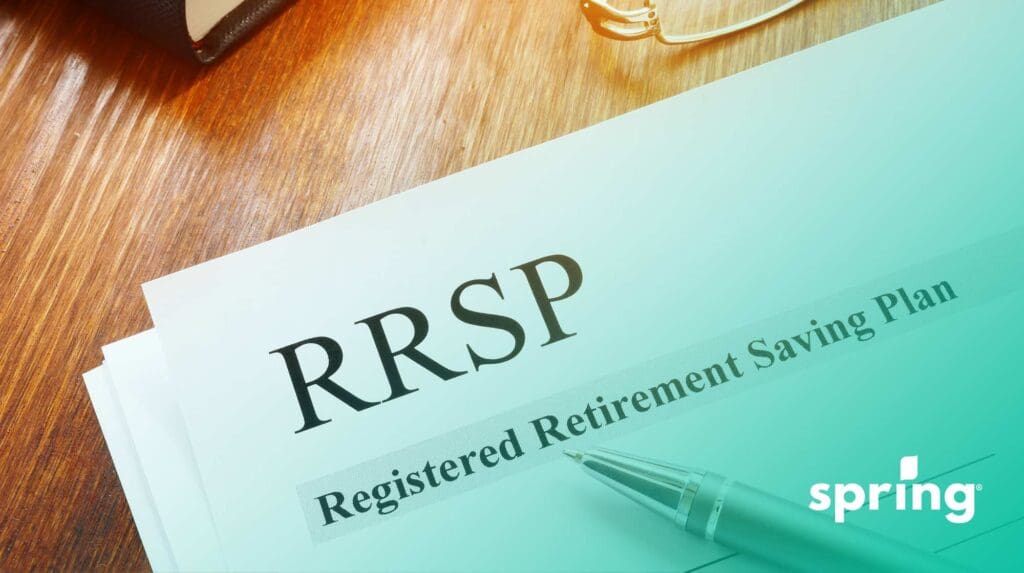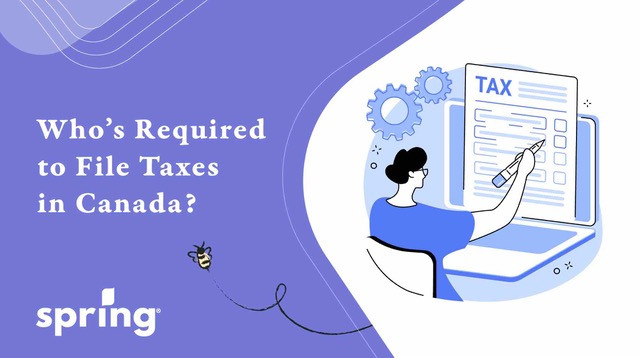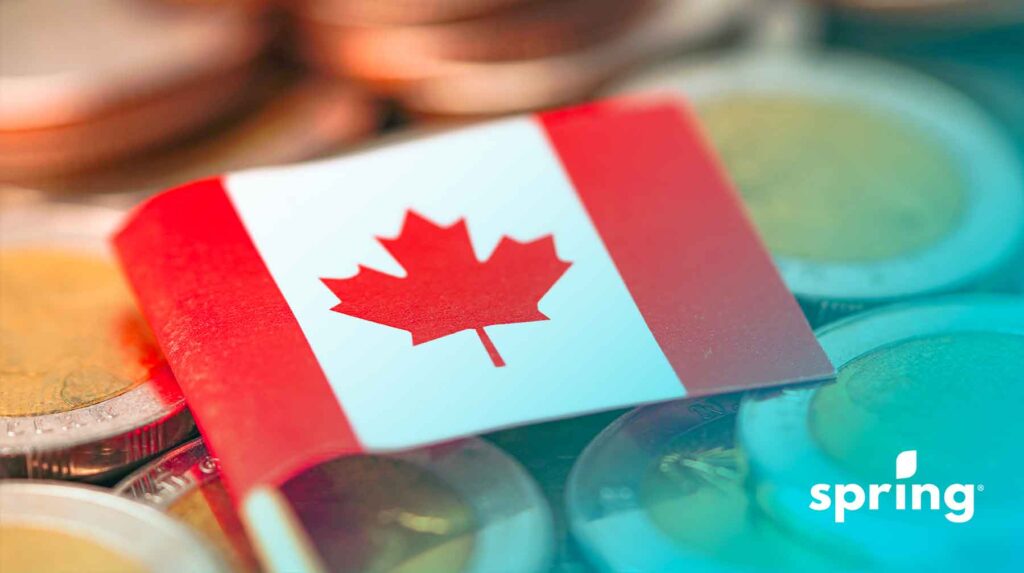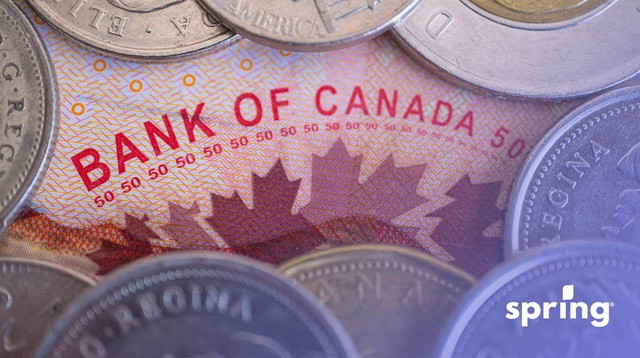What exactly are property taxes, though? Well, property taxes are the way that local governments gain revenue to pay for things like police stations, fire stations (emergency services), road maintenance, snow removal and community centres. Really, property taxes are there to provide funding for public services. Even though all property taxes are used for the same purpose, different municipal governments have their own rates.
Calculating Property Taxes in Canada
When it comes to calculating property tax rates in Canada, the process is generally the same, but the rates are different. Essentially, the current value of your property is multiplied by the current tax rate using a unique tax formula to give you the amount you owe in property taxes annually. It’s important to remember that the house prices you pay when you purchase the home aren’t included in the property tax assessment, only the current market value.
Depending on where you live in Canada, you may have other fees added to your property tax bills. Some of these other fees include the education tax and the city building fund. There may also be water and garbage collection fees included in the property taxes since they’re a public service. That said, some municipalities will make some of these services optional, depending on where you live.
How The Housing Market Impacts Your Property Taxes
One of the many misconceptions about property taxes is that what you pay is based on what you paid for your house, but that’s not true. The property tax bill given to property owners annually is based on the assessment value of your home. If you just purchased the home, this may also include the land transfer tax.
Even if the city taxes have some of the lowest property tax rates, you still could end up having high property taxes in an expensive real estate market. However, the opposite is true if you have higher property tax rates with average home prices, then you could still have higher property taxes. So, while your property assessment does affect your tax payments, similar average property prices will have different tax payments based on the Canadian cities’ rates.
The Average Property Tax Rate
Property taxes in Canada can range anywhere from .5% to 2.5%, depending on the municipality and any rate adjustments made. That said, though, the property taxes for a lot of major cities sit anywhere between .5% and 1.3%. These cities also happen to have some of the highest housing costs in Canada.
Average Property Taxes in Canadian Cities
How much your property taxes are in Canada is based on what your municipal property taxes are and what your assessed property value is. This is because property taxes are calculated using these two things. This is also why property taxes vary so much. In places that have a vacancy tax, these amounts can be even higher.
Ontario
In Ontario, the average property taxes are between $7,000 and $8,000 per year. This is because it’s one of the most expensive provinces to purchase a home in, and has higher property tax rates. However, since these property tax rates vary from municipality to municipality, this amount is only an average.
Toronto
Based on property tax increases and the property’s assessed value, the average property tax amount in Toronto is $7,000. While this is still a lot, these rates are lower than in other places like Mississauga. Here, the rates on residential homes can go up to around $8,500. This is crazy since both places are in the same province.
Winnipeg
The average property tax amounts are also between $7,000 and $8,000. This is because Winnipeg has a higher property tax rate, even though the cost of purchasing a home there is less than in other parts of Canada.
Property Taxes and Foreigners
In Canada, there are no extra property taxes that you’re required to pay as a foreigner. That said, there is the Non-Resident Speculation Tax. This tax is required to be paid by foreign buyers at the time of closing when they purchase a home. However, this tax is only required to be paid in Ontario and parts of BC. The rates vary in each province. It’s 20% in BC and 25% in Ontario.
How Often You Pay Property Taxes
How often you’re required to pay your property taxes depends on what municipality you live in. Most commonly, property taxes are paid once a year. However, many municipalities will allow you to pay them monthly, semi-annually, or lump them in with your mortgage.
Usually, the cost of your property taxes will change yearly depending on the property tax rate fluctuations and the home’s assessed value, which is normally done yearly. It’s different everywhere, though. Some provinces, like Ontario, only reassess their property values every 4 years.
How To Pay Your Property Taxes
When you pay your annual taxes, you pay property taxes directly to your municipality. Every year, you’ll receive a bill stating your annual property tax owed. You can then make these property tax payments in full. That said, it isn’t the only way to pay them. You can also set up pre-authorized payments at a more affordable cost and split the required payment.
Instead of organizing this with the municipality, though, many homeowners choose to speak with their bank and lump in these property tax payments with their monthly mortgage payments for more substantial relief. However, you don’t have to have a high tax rate to do this. Even if you have some of the lowest property prices and a relatively low tax rate, you can set this up for your annual taxes.
1% Property Tax in Canada
The 1% property tax in Canada is also referred to as the Underused Housing Tax. This tax became active in January of 2022 and is an annual federal charge of 1% on all vacant or underused housing. The reason this tax was put into place was to discourage vacancy on property and encourage these owners to rent out their p,roperties since there’s a housing shortage in Canada.
Highest Property Taxes in Canada
The province with the highest property taxes is Winnipeg, Manitoba, with a property tax rate of 2.64%. However, even though the property taxes are higher, the housing prices are significantly lower than in many other cities and provinces. In fact, the average cost of housing in Winnipeg is $350,000, making the average annual property tax just shy of $10,000 per year.
Lowest Property Tax Rates in Canada
In Canada, the province with the lowest property taxes is British Columbia, specifically Vancouver. Their property taxes currently sit at 0.27807%. However, even though their property taxes are low, they have some of the highest homeownership costs in the country. The average-priced home in Vancouver is just over $1 million, with the average price of property taxes being just over $3,000.
Lowest Property Taxes in Canada
While Vancouver, BC, has the lowest property tax rates, Alberta is known for having some of the lowest property taxes. This is because they don’t have sky-high rates, and their cost of housing isn’t super high either. This even accounts for affordable property taxes.
Property Taxes Per Province
Now that we’ve looked at the highest and lowest property taxes in the country, how does the rest of the country fit in? Well, let’s take a look.
It’s important to keep in mind that these rates are for residential properties. There are different tax rates for commercial and municipal properties.
| Cities | Property Tax Rate | Average Home Assessed Value | Average Property Tax Cost |
| Vancouver, British Columbia | 0.27807% | $1,188,000 | $3,303 |
| Calgary, Alberta | 0.65718% | $420,507 | $3,661 |
| Regina, Saskatchewan | 1.556501% | $316,100 | $4,920 |
| Montreal, Quebec | 0.5305% | $519,200 | $2,754 |
| Winnipeg, Manitoba | 2.6439% | $344,600 | $9,111 |
| Fredericton, New Brunswick | 1.62% | $280,400 | $5,061 |
| Toronto, Ontario | 0.666274% | $1,196,101 | $7,969 |
| St. Johns, Newfoundland and Labrador | 0.83% | $312,399 | $2,997 |
| Charlottetown, Prince Edward Island | 1.67% | $339,000 | $5,661 |
| Halifax, Nova Scotia | 1.154% | $400,500 | $4,622 |
As you can see by looking at these numbers above, there’s really no correlation between the property tax rate and the housing value. Rates change based on each province and each local government.
In fact, if you look closely, you’ll notice that the Prairies and the Atlantic Coast tend to have higher property tax rates. As you can see, the lowest rate is in BC, but those don’t stop in Vancouver. In fact, Abbotsford, Kelowna and Victoria actually have low property tax rates. They’re actually also some of the lowest in the country.
- Abbotsford has a tax rate of 0.37086%
- Kelowna has a tax rate of 0.39799%
- Victoria has a tax rate of 0.43621%
The average home prices for each of these 3 cities all sit between $800,000 and $1 million, making the average property tax amount between $3,000 and $4,000 annually.
Predicting Your Annual Property Taxes
While we’ve gone over the average cost of property taxes in Canada, this still doesn’t narrow down what your individual property taxes will be. The easiest way to determine what your property taxes will be is to take your housing assessment and use the property tax calculator that many municipal governments have available on their website. This will give you a rough idea of how much you’ll owe.
While this is just an estimate, it’s close to the actual number and allows you to predict what you’ll owe. Because property tax rates can fluctuate annually, many Canadians will spread out the cost of their property taxes throughout the year to make for more affordable property taxes.
For some, a large annual bill isn’t always feasible. This is also the reason why some people will lump it in with their mortgage payments. However, every year, there are also a few residents who don’t pay their Canadian property taxes and will be subjected to late fees.
Penalties For Not Paying Your Property Taxes
While the penalties for not paying your property taxes vary based on the municipality and the province, there are some consistencies. The first is that as soon as you miss your payment, there is an automatic penalty. From there, interest is added monthly until the taxes are paid.
In Canada, your property taxes can remain unpaid for a while. That said, once they’ve been unpaid for three years. Then you need to worry. Now, the municipality is able to sell your home in order to cover the costs of the unpaid taxes. For this reason, it makes the most sense to come up with a payment plan to catch up on your taxes.
How Property Values and Property Taxes Correlate
When you’re purchasing a home, there are a few things you should consider about property taxes. This is because residential property taxes are based on the value of the property and not the purchase price.
- Comparing property tax rates is important. This is one of the most important pieces pertaining to property tax revenue.
- The property market value over the years, and predicted changes in the market can provide a lot of information. This can help you determine your average property tax amount.
- The property type makes a large difference and can affectyour property tax rates.
- High property values and low property values can affect the tax rates in your area.
- How property taxes are affected differently in rural areas versus urban.
- Often, there are other annual fees that need to be paid to the municipalities on top of the city tax rates.
In Canada, property taxes have nothing to do with federal income tax rates. These are rates specific to municipalities that can help provide funding to essential local services like fire departments and other vital service providers at all service levels. Since these rates vary significantly, it’s important to look at all aspects of these rates and not just the rate itself.
Overview
No matter where you choose to live and purchase a home in Canada, it’s important to consider not only the housing prices and cost of living but also the property tax rates. As you can see, just because the cost of housing is low, it doesn’t mean the property taxes are low. In fact, it seems that those who have lower assessed home values actually pay a bit more in property taxes.
While property taxes can be quite expensive, they’re actually quite necessary to fund public services. These public services are necessary to keep communities running smoothly.









